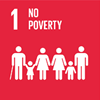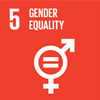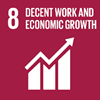This project looks at what we know about the patterns and drivers of informality. It will provide knowledge for better policy-making with respect to the informal sector, by understanding the causes and consequences of informality.
In classical accounts of economic development, economic growth is seen to be accompanied by a decline in the informal sector. Yet, in most developing countries the informal sector remains a persistent phenomenon in spite of rapid economic growth in recent decades. Pervasive informality is particularly widespread in sub-Saharan Africa and South Asia, and less so in East Asia and Latin America, whether informality is defined as lack of firm registration, lack of social security coverage or lack of an employment contract. With ‘premature deindustrialization’ and the growth of the informal service sector, it seems likely that the trajectory towards informalization in low- and middle-income countries may be intensified in the future. Much of the working poor reside in the informal sector, working in their own enterprises or employed as casual wage labour in poorly paid jobs. In addition, women are more likely to be in the informal sector, either working as unpaid workers in the enterprises headed by the males in their households, or in poorly paid casual jobs in the informal sector.
The challenge for policy makers is then to find ways to encourage the movement of workers from the informal sector to the more productive formal sector, and concurrently provide opportunities for more dynamic informal firms to grow, and for those working in these firms to achieve decent and remunerative work.
Key questions
-
Why do we see different patterns of informality across the developing world? What explains the high prevalence of informality in sub-Saharan Africa and South Asia, as compared to East Asia and Latin America?
-
How can women workers in the informal sector witness an increase in the returns to their labour and are more able to move to better paid jobs in the formal sector? What constrains the growth of female-headed informal enterprises, and how can the incidence of unpaid work by women workers in male-headed informal enterprises be decreased?
-
What do we know about the policy interventions that can contribute to livelihood enhancement for informal workers and households? What is the likelihood of informal firms and households making a transition to the formal sector, and what kind of policies are more likely to help in this transition?
-
How does informality interact with urbanization, and how does the rapid and unplanned growth of cities in Africa and Asia deepen processes of informality? How can urban planning processes provide a more enabling environment for the growth of the more dynamic informal enterprises and, at the same time, lessen the inequality-enhancing effects of pervasive informality?
Watch this space
All papers, data, opinion pieces and opportunities to engage relating to this project will be available on this webpage. The project will be launched in an inception workshop held at UNU-WIDER on 8 February 2019, which will set out the research agenda and modalities of the project going forward.
The project centrally addresses SDG1 (No Poverty), SDG5 (Gender Equality), and SDG8 (Decent Work and Economic Growth).

 Join the network
Join the network

